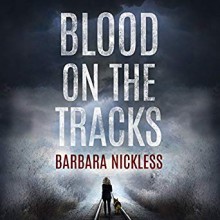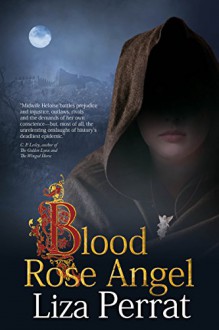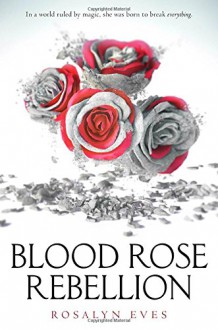
A well-plotted murder story that introduces a strong but guilt-ridden ex-army Railroad Cop and her service dog, tracking a killer who seems to be a Vet suffering from PTSD.
"Blood On The Tracks" is not the catch-the-killer kind of crime story that it may appear to be. The real mystery being unwrapped through the novel is the complex history and fractured but resilient character of Sydney Rose Parnell, the Railroad cop who gets dragged into the investigation of a murder, apparently committed by an ex-army vet turned rail rider.
Sydney is compelling. She's an ex-soldier who spent fourteen months in Mortuary Affairs in the US Army, scooping up human remains in Iraq. Now she's back home in Denver, working as railroad cop, together with a service dog that she brought back from the war and who is as damaged by it as Sydney is.
It's clear from the beginning that Sydney, who is literally haunted by her war dead and who has secrets to hide and grief and regret to live with is the centre of the story.
Barbra Nickless' writing is deft, letting the reader discover and guess rather than signposting meanings. We first see Sydney and her ex-army service dog out amongst the homeless she's supposed to roust but who she also feeds. Then we see her at the crime scene. Her approach is credible, pain-filled, more than a little off-centre in a PTSD kind of way and completely human. From that point on, I knew I wanted to understand who she is and how she came to be that way.
One of the things I like most about "Blood On The Tracks" was the realistic and empathetic way that it handles grief and mourning for the dead. Sydney talks about "the weight" of her dead. She carries them with her. Sees them at her breakfast table.
I like "weight" as a description.I'm a civilian. No PTSD for me. But that doesn't mean no weight. I don't see anyone but the living at my breakfast table. I don't get glimpses of the gone but I have no difficulty imagining that happening to me.
My dead are like potholes in my road, cavities in my teeth, absences that make themselves known from time to time and snag all of my attention.
In my experience, grief doesn't move through six neatly labelled stages and then stop. It comes in waves that drench you and then leave. Sometimes it's just a splash. Sometimes they roll you for a while, so you don't know which way is up and breathing becomes difficult.
The grief in "Blood On The Tracks" isn't a plot device or a way of accessorising a character, it's the central idea book and it's delivered with strong, clear, uncompromising writing that I admire.
I also enjoyed the skilful way Barbara Nickless drew upon a detailed knowledge of two worlds that are alien to me, the US Army and the US Railroad, and wove them into the story in ways that made it stronger, more distinctive and more credible without ever leaving me feel like I'd just been force-fed a stomach full of information.
The plot is twisty and sometimes surprising- It's larded with moments of high drama and violence and paced to provide continuous tension and still manages seamlessly to integrate a great deal of introspection and recollections of Sydney's time in Iraq.
I enjoyed the book a great deal and I'm looking forward to the rest of the series.
The only niggle that I have is the first chapter, which, if it had continued much longer, might have made me set the book aside. It's a framing chapter, setting up the murder around which the rest of the book will revolve and introducing the main suspect.
The suspect is interesting and the potential pathos is high but it was told from a distance, never really letting me inside the suspects head. It read more like the notes I might give an actor who wants to play this part. The text was a little heavy-handed, leaving me in no doubt about what I was supposed to feel but not actually making me feel it.
It wasn't a long chapter, so I moved on to the next, already wondering if this book would be another for my DNF pile and asking myself if I was becoming too picky or maybe I was just jaded.
Then I met Sydney Rose Parnel and I wanted to ask the author and the editor: "Why didn't you start here?".
I listened to the audiobook version of "Blood On The Tracks" and I recommend it to you. Click on the SoundCloud link below to hear a sample.

 Log in with Facebook
Log in with Facebook 







